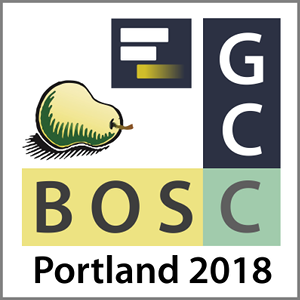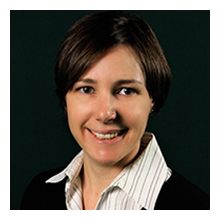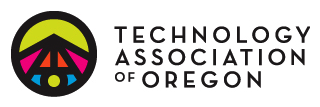March 2018 Galaxy News
Welcome to the March 2018 Galactic News, a summary of what is going on in the Galaxy community. If you have anything to add to next month's newsletter, then please send it to outreach@galaxyproject.org.
GCCBOSC 2018
Abstract submission, registration & housing are open
We are pleased to announce that abstract submission and early registration for GCCBOSC2018 are now open.
- Submit an abstract (oral presentation abstracts due March 16)
- Register
- Book conference housing
GCCBOSC 2018 will be held 25-30 June in Portland, Oregon, United States. This brings the 2018 Galaxy Community Conference and the Bioinformatics Open Source Conference together into a unified week-long event. If you work in open source life science or data-intensive biomedical research, then there is no better place than GCCBOSC 2018 to present your work and to learn from others.
GCCBOSC starts with two days of training with a wide range of topics nominated and selected by our communities. Training is followed by a two day meeting, with joint and parallel tracks, featuring oral presentations, posters, demos, lightning talks, birds-of-a-feather and invited keynotes. The week finishes with CollaborationFest Core and Encore, two or four days of collaborative work on code, documentation, training and challenging data analysis problems.
Training schedule set
A big thank you to everyone who nominated topics, voted on topics, helped create workshop descriptions, and to the instructors who will be presenting in June. All your efforts and input have helped us create two full days of training at GCCBOSC.
The first day has two tracks about Galaxy, each with three sessions:
- Intro to Using Galaxy
- Intro to Galaxy Administration
The second day has five parallel track, and covers a full spectrum of topics of interest to those working in and with open source bioinformatics:
- Setting up for success: Everything you need to know when planning for an RNA-seq analysis (2 sessions)
- GATK4: What's new and how to run it
- Data Carpentry Genomics Workshop: Data Organization and Automation with Shell (3 sessions)
- Handling integrated biological data using Python (or R) and InterMine
- Bioinformatics Training and Education with the Galaxy Training Network
- Practical use of the Galaxy API command line tools
- Command line workflow management systems: Snakemake and Nextflow
- WDL, the Workflow Description Language
- Community built analyses that run everywhere with bcbio
- Introduction to Common Workflow Language
- Conda and Containers
- Galaxy Interactive Environments
- Galaxy Architecture
Keynote speakers
We are pleased to announce two of our keynote speakers:
BOSC / GCC Joint Keynote: Fernando Pérez
Dr. Pérez is an assistant professor in Statistics at UC Berkeley and a Faculty Scientist in the Department of Data Science and Technology at Lawrence Berkeley National Laboratory. He also created IPython while a graduate student and co-founded its successor, Project Jupyter.
BOSC 2018 Keynote: Tracy K. Teal
- The Carpentries
- Journal for Open Source Software
Dr. Teal is the Executive Director of The Carpentries. She co-founded Data Carpentry to develop and scale this training, and Data Carpentry has now joined with Software Carpentry to form The Carpentries and more broadly meet training and community needs.
GCCBOSC 2018 Sponsors
We are happy to have several confirmed GCCBOSC 2018 sponsors. This month we are highlighting F1000Research and the Technology Association of Oregon:
F1000Research
For the first time, the Galaxy Community Conference and Bioinformatics Open Source Conference are joining together for a unified event. To mark this occasion, the BOSC Collection and the Galaxy Gateway on F1000Research will be publishing a series of articles in the run up to the conference in June and are now inviting contributions. The submission deadline is April 30th, to ensure papers are published before GCCBOSC 2018 starts. If you are interested in contributing or have any other questions, please email research@f1000.com.
Technology Association of Oregon
Technology Association of Oregon is the force behind the Oregon tech industry. Supporting entrepreneurs, connecting peers and decision makers, and helping grow the Northwest as a global hub for innovation. We are proud to be a leader in the regional technology community and offer many ways for individuals, companies, and community organizations to partner with us in Oregon and SW Washington.
[
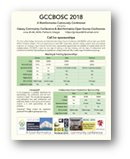 ](https://depot.galaxyproject.org/hub/attachments/documents/gccbosc2018_sponsorship_summary_20170906.pdf) [
](https://depot.galaxyproject.org/hub/attachments/documents/gccbosc2018_sponsorship_summary_20170906.pdf) [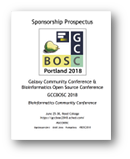 ](https://depot.galaxyproject.org/hub/attachments/documents/gccbosc2018_sponsorship_prospectus_20170906.pdf)
](https://depot.galaxyproject.org/hub/attachments/documents/gccbosc2018_sponsorship_prospectus_20170906.pdf) Call for sponsors!
Sponsors are a key part of GCCBOSC 2018. Is your organization interested in playing a prominent role in the first joint gathering of the Galaxy and BOSC communities? Then become a GCCBOSC 2018 sponsor and raise your organization's visibility in these active and engaged communities.
ELIXIR Galaxy Community Kickoff and Meeting, March, Freiburg
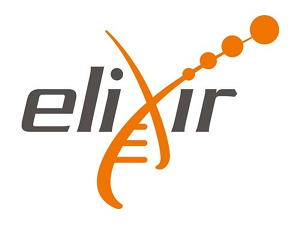 ](https://www.elixir-europe.org/events/galaxy-community-kickoff-meeting-and-galaxy-user-conference)
](https://www.elixir-europe.org/events/galaxy-community-kickoff-meeting-and-galaxy-user-conference) [
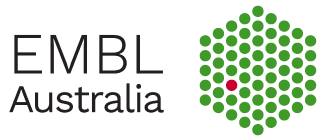 ](http://www.emblaustralia.org/)
](http://www.emblaustralia.org/)
The ELIXIR Galaxy community will have a kickoff meeting 14-16th March 2018, in Freiburg/Germany. We will combine this with a Galaxy User Conference and the official launch of the usegalaxy.eu server.
This event will also be coordinated with the EMBL Australia to also launch usegalaxy.org.au at the same time.
Wednesday (the 14th) will be dedicated to the ELIXIR Galaxy community, to discuss and plan our roadmap in 2018 and 2019. Thursday and Friday (15th, 16th) will be a conference where Galaxy users talk about their research and use-cases. However, a few spots we will reserved for official talks from ELIXIR.
Register now as space is limited.
Galaxy Africa, 3-5 April, Cape Town
Galaxy Africa will be held 3-5 April in Cape Town, South Africa at SANBI on the Universtiy of the Western Cape campus.
The inaugural Galaxy Africa meeting represents the start of building a data intensive analytics network in Africa. This annual meeting is intended be the networking space for bioinformatics and system administrators to strengthen tool development and research.
Conference Fellowships
If you would like to attend, but need financial assistance to get there, then you are encouraged to apply for a conference fellowship. Fellowship application review will start 10 March. Fellowships are provided by the Galaxy Community Fund.
Upcoming events
These and other Galaxy related events coming up in the next few months:
New Galactic Blog Entry: Coding in the Winter Wonderland: Galaxy Admin Training
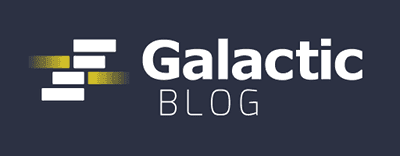 ](/news/)
](/news/)
February had one new Galactic Blog entry:
Publications
133 new publications referencing, using, extending, and implementing Galaxy were added to the Galaxy Publication Library in February.
Highlighted Publications
The Galactic and Stellar publications added in February were:
- GeneSeqToFamily: a Galaxy workflow to find gene families based on the Ensembl Compara GeneTrees, Anil S Thanki, Nicola Soranzo, Wilfried Haerty, Robert P Davey. GigaScience, giy005, doi: 10.1093/gigascience/giy005
- Disseminating Metaproteomic Informatics Capabilities and Knowledge Using the Galaxy-P Framework, Clemens Blank, Caleb Easterly, Bjoern Gruening, James Johnson, Carolin A. Kolmeder, Praveen Kumar, Damon May, Subina Mehta, Bart Mesuere, Zachary Brown, Joshua E. Elias, W. Judson Hervey, Thomas McGowan, Thilo Muth, Brook L. Nunn, Joel Rudney, Alessandro Tanca, Timothy J. Griffin and Pratik D. Jagtap. Proteomes 2018, 6(1), 7; doi:10.3390/proteomes6010007
- Mind your gaps: Overlooking assembly gaps confounds statistical testing in genome analysis, Diana Domanska, Chakravarthi Kanduri, Boris Simovski, Geir Kjetil Sandve. bioRxiv 252973; doi: 10.1101/252973
- MAJIQ-SPEL: web-tool to interrogate classical and complex splicing variations from RNA-Seq data, Christopher J Green, Matthew R Gazzara, Yoseph Barash. Bioinformatics, Volume 34, Issue 2, 15 January 2018, Pages 300–302, doi: 10.1093/bioinformatics/btx565
- Low-pass single-chromosome sequencing of human small supernumerary marker chromosomes (sSMCs) and Apodemus B chromosomes, Makunin, A.I., Rajičić, M., Karamysheva, T.V. et al. Chromosoma (2018). doi: 10.1007/s00412-018-0662-0
Publication Topics
| # | Tag | # | Tag | # | Tag | # | Tag | |||
|---|---|---|---|---|---|---|---|---|---|---|
| 93 | +Methods | 37 | +UsePublic | 21 | +Workbench | 20 | +UseMain | |||
| 12 | +RefPublic | 12 | +UseLocal | 4 | +Shared | 4 | +Tools | |||
| 4 | +Reproducibility | 2 | +HowTo | 2 | +Cloud | 2 | +IsGalaxy | |||
| 1 | +Visualization | 1 | +UseCloud |
Who's Hiring
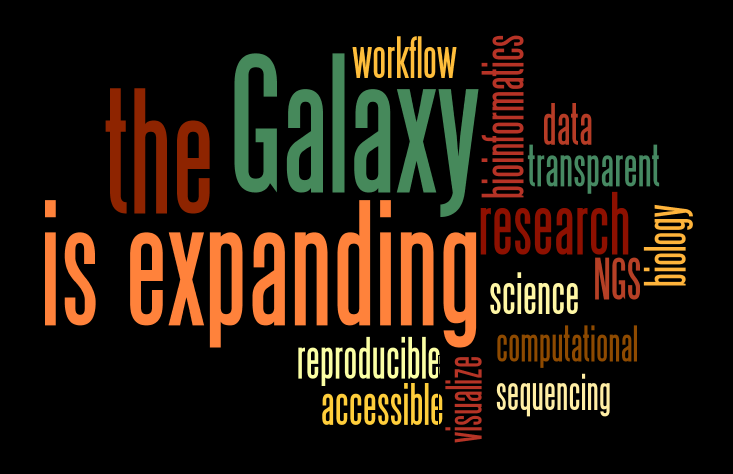
The Galaxy is expanding! Please help it grow.
- Software Engineer - 8 months contract, Institut Pasteur, Paris, France
- Développement d'outils bioinformatiques et statistiques pour l'analyse de l'air expiré en médecine par spectrométrie de masse en temps-réel, CEA Saclay, France
- Ingénieur en développement de composants Galaxy pour la protéomique, MaIAGE , INRA, Jouy-en-Josas, France
- The Freiburg Galaxy Team is looking for 2 Postdoctoral researchers
- The Blankenberg Lab in the Genomic Medicine Institute at the Cleveland Clinic Lerner Research Institute is hiring postdocs.
- Galaxy Project is hiring software engineers and postdocs at Johns Hopkins, Baltimore, Maryland, United States
Have a Galaxy-related opening? Send it to outreach@galaxyproject.org and we'll put it in the Galaxy News feed and include it in next month's update.
Public Galaxy Server News
There are over 90 publicly accessible Galaxy servers and six semi-public Galaxy services. Here's what happened with them last month, including a new public server:
Metaproteomics Gateway Server
The Galaxy-P Metaproteomics Gateway provides access to documentation and other instructional materials, and an opportunity for hands-on training using example datasets and optimized metaproteomics workflows. The main goal of this server is to provide documentation to facilitate training and mastery of these software and workflows.
Step-by-step training instructions and related information and a Metaproteomics Tutorial Video are available. The server can be accessed anonymously or you can create an account. It is maintained by @galaxyproteomics.
See Disseminating Metaproteomic Informatics Capabilities and Knowledge Using the Galaxy-P Framework by Clemens Blank et al. for more.
deepTools 3.0 is live
deepTools 3.0 is now available on the deepTools Galaxy Server. Changes include a completely revamped normalization interface (and new methods), CRAM support, interactive plots, a more homogenized interface, new tools and better MultiQC integration
ARGs-OAP v2.0 published
In addition to being referenced in several papers last month (see below), the ARGs-OAP server was upgraded as well:
- ARGs-OAP v2.0 with an expanded SARG database and Hidden Markov Models for enhancement characterization and quantification of antibiotic resistance genes in environmental metagenomes, Xiaole Yin, Xiao-Tao Jiang, Benli Chai, Liguan Li, Ying Yang, James R Cole, James M Tiedje, Tong Zhang. Bioinformatics, bty053, doi: 10.1093/bioinformatics/bty053
Public Servers in Publications
We tag papers that use, mention, implement or extend public Galaxy Servers. Here are the counts for February's publications.
| # | Tag | # | Tag | # | Tag | # | Tag | |||
|---|---|---|---|---|---|---|---|---|---|---|
| 15 | >Huttenhower | 7 | >RepeatExplorer | 6 | >ARGs-OAP | 3 | >Workflow4Metabolomics | |||
| 3 | >Orione | 2 | >Cistrome | 2 | >Galaxy-P | 2 | >RNA-Rocket | |||
| 1 | >PhenoMeNal | 1 | >Osiris | 1 | >BioCiphers | 1 | [>Metaproteomics Gateway](https://www.zotero.org/groups/1732893/galaxy/tags/>Metaproteomics Gateway) | |||
| 1 | >Mississippi | 1 | >BIPAA | 1 | [>Genomic Hyperbrowser](https://www.zotero.org/groups/1732893/galaxy/tags/>Genomic Hyperbrowser) | 1 | >RiboGalaxy | |||
| 1 | >APOSTL | 1 | >PreSTIGE | 1 | >GenAP | 1 | >GVL-Unspecified | |||
| 1 | >Pasteur | 1 | >GalaxEast |
Tools
ToolShed Contributions
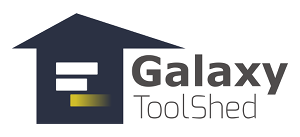 ](http://toolshed.g2.bx.psu.edu/)
](http://toolshed.g2.bx.psu.edu/)Tool Shed contributions in February.
Releases
Planemo 0.48.0
Planemo is a set of command-line utilities to assist in building tools for the Galaxy project. These releases included numerous fixes and enhancements.
See GitHub for details.
Pulsar 0.8.1-3
Pulsar updates were released in February. Pulsar is a Python server application that allows a Galaxy server to run jobs on remote systems (including Windows) without requiring a shared mounted file systems. Unlike traditional Galaxy job runners - input files, scripts, and config files may be transferred to the remote system, the job is executed, and the results are transferred back to the Galaxy server - eliminating the need for a shared file system.
galaxy-lib 17.9.11-18.5.2
galaxy-lib is a subset of the Galaxy core code base designed to be used as a library. This subset has minimal dependencies and should be Python 3 compatible. It's available from GitHub and PyPi.
Earlier Releases
Other packages released in the prior 4 months.
17.09 Galaxy Release
The Galaxy Committers published the 17.09 release of Galaxy in October.
Highlights include
- Singularity Tool execution using the HPC-friendly container technology Singularity is now supported.
- Download entire collection Downloading whole collections is now possible from the history interface. (Thanks to @mvdbeek.)
- Switch tool versions in workflows You can now select exactly what version of tool you want to use when building workflows. (Thanks to @mvdbeek.)
- Security patches
- Several features were deprecated
See the 17.09 release announcement for details.
Galaxy Docker Image 17.09
The Galaxy Docker project has seen a matching release, for Galaxy 17.05. Major features include
- much improved documentation about using Galaxy Docker and an external cluster (@rhpvorderman)
- CVMFS support - mounting in 4TB of pre-build reference data (@chambm)
- Singularity support and tests (compose only)
- more work on K8s support and testing (@jmchilton)
- using .env files to configure the compose setup for SLURM, Condor, K8s, SLURM-Singularity, Condor-Docker
And
- The Galaxy Docker Project has reached more than 31k downloads on Dockerhub - not counting quay.io and all flavors
ephemeris 0.8.0
Ephemeris is a small Python library and set of scripts for managing the bootstrapping of Galaxy plugins - tools, index data, and workflows.
- Free software: Academic Free License version 3.0
- Documentation: https://ephemeris.readthedocs.org.
- Code: https://github.com/galaxyproject/ephemeris
blend4php 0.1 beta
The beta version of the blend4php package, a PHP wrapper for the Galaxy API, was released in December. It provides a PHP package for interacting with Galaxy and CloudMan. blend4php currently offers a partial implementation of the Galaxy API and includes support for datasets, data types, folder contents, folders, genomes, group roles, groups, group users, histories, history contents, jobs, libraries, library contents, requests, roles, search, tools, toolshed repositories, users, visualizations and workflows.
The motivation for development of this library is for integration with Tripal, an open-source toolkit for creation of online genomic, genetic and biological databases.
Please see the API documentation page for full information.
And the rest ...
Other Galaxy packages that haven't had a release in the past four months can be found on GitHub.
Other News
-
From Björn Grüning
- New Galaxy tutorial by Simon Gladman and Torsten Seeman about Microbial Variant Calling using snippy.
- This is big: Aysam Guerler has reworked the Galaxy visualization plugin architecture.

